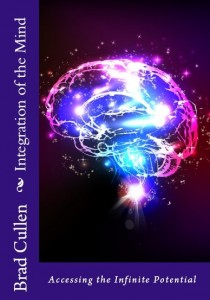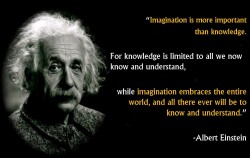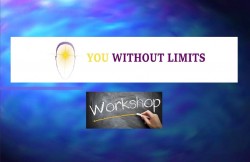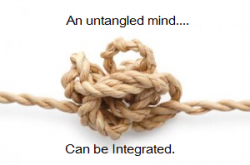Jul 15
3
What the Hardy Boys Have Learned
Hardy Boys (Brad Cullen and Bruce Ryan) Since Writing/Publishing Integration of the Mind*
* ©2014 SHS Publishing – Burnaby, B.C., Canada
We can all think as expansively as Albert Einstein when we learn to keep the conscious mind from interfering with the other-than-conscious zone Uncle Albert referred to as the imagination and from which his theories of relativity were begotten and which also led to Quantum Mechanics …the physics of the sub-microscopic arena …we’re talking small here.
It is with the conscious mind that we must decide to enter this zone, but it takes the cooperation of the WHOLE MIND to use the imagination and that means we have to choose, with the conscious part, to keep it (the conscious) from interfering with that part which does a far better job of bringing the intention of the conscious to fruition.
Let’s play around with this concept for a few moments and see where it takes us. If we are willing to look at the conscious as potentially BOTH a culprit AND a hero we begin to see part of the challenge.
Two terms related to the functions of parts of the minds of these body-bags we occupy, such as the subconscious or unconscious both mean far too many different things to far too many different people to communicate anything meaningful to any one of us.
STOP!!! (In other words, please get this, for here is the point that is driving what I hope will be meaningful to anyone reading it: Dictionary.com posits the term “PSYCHE” as meaning –and quoted exactly–
“The mind, soul, or spirit, as opposed to the body; in psychology, the psyche is the center of thought, feeling, and motivation, consciously and unconsciously directing the body’s reactions to its social and physical environment.” [emphasis mine]
The word psychology which presumably, because of the “ology” attached to it indicates the study of this strange thing called the psyche – with all the different branches of psychology and their myriad and, at times, almost violently different approaches, which expert in what branch can we believe or trust?
Because much of my early exposure to psychology came almost via osmosis (as opposed to any structured study) while being in a close business, personal and spiritual relationship with a psychiatrist and personally witnessing BOTH the successes (meaning people getting off dependence on both chemical prescriptions such as tranquilizers and a variety of therapies …and to leading vibrantly functioning, happy, purposeful lives, independent of such things) and hopeless failures (such as meaning all the way to hearing about gruesomely committed suicides), I came to the conclusion that whatever therapy that worked for whatever person was perfect for that particular person and that there simply was no universal cure.
Back to the definition of psyche as being the mind, soul or spirit, as opposed to the body; from a couple different points of view:
Let’s start out with the branch of science called neurobiology, which basically refers to the study of the nervous system and its interaction with every part of the body; and the fact that some neurobiologists insist that all the millions of cells in the body, each having a neurotransmitter that continually receives and transmits vibratory signals along the entire nervous system and thus IS the entirety of the psyche. In other words, from this point of view the psyche includes the body rather than being thought of “as opposed to it.”
The other point of view comes from Theology …another term indicating, with the “ology” attached to it, that there’s serious, conscious, human study going on …and in this case the study of “God;” an English word which is presumed to be the equivalent of the Greek word Theos (θεός) and the driving force of religion …dare I insert here, “God-ology?”
Religions …with so many of those and which, it seems, some of us believe, to one degree or another, are the source of many or even most wars – however, just as with psychology, with each branch, presumed experts using the same words, but often meaning something differently from other branches; and different branches of neurobiology with its presumed experts using some of the same terms differently, we have different theological scholars, again presumed experts, who disagree that the Greek word θεός can even be translated as “God.”
Just as with psychology and neurobiology, which theological scholar-expert can we believe and trust?
The Hardy Boys, again, Brad and Ryan, both names admitted nom deplumes (For Doug and Mark), began experimenting with thinking like Uncle Albert and stumbled onto some results that amazed us.
This prompted the founding of YOU WITHOUT LIMITS free “Workshops” a learning experience from the simple practice of putting the imagination to work and keeping the conscious mind from interfering.
For more information go to: www.youwithoutlimits.life
Click here for our VideoCast: VideoCast 2 – July 3 2015



